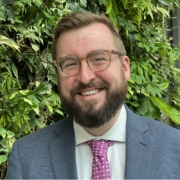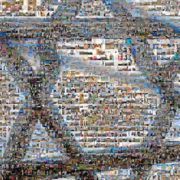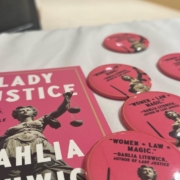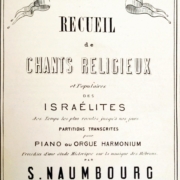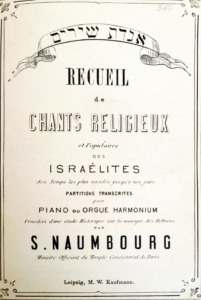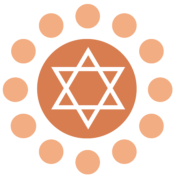You Can’t Be Late to Sinai
During our Torah service this Shabbat, we will read the Decalogue, the 10 commandments, and as a community, we will stand to reenact that pivotal moment. This act of physically rising is an echo through time and space of our ancestors who, themselves, physically stood at Sinai to receive this great and sacred obligation. It is also a nod towards the rabbinic teaching that every Jewish soul, created and yet to be, Jew by birth and Jew by choice, all of us stood at Sinai to receive the Torah together.
This ‘timelessness’ and also the bending and breaking of time is known in the Talmud as “אין מוקדם ומאוחר בתורה /Ain Mukdam oh Mei’uchar bah Torah.” or “In the Torah that is no early or later.” Many of our great rabbinic sages argue that one should not understand the Torah in chronological order; that there is a natural fluidity that comes from this being a text infused with divine wisdom. It can exist within, and outside, of our understanding of time. For instance, according to the Midrash, at the very beginning of time, God looks in the Torah for guidance on creating the universe. Similarly, the rabbis argue that when Moses received the entire Torah on Mount Sinai that revelation included his eventual tragic fate; destined to never enter into the land of Israel. And what was Moses’s response? To scribe those words with his own tears.
A far less dramatic example can be found in this week’s Torah portion, away from the hustle and bustle of the Decalogue- when Jethro, Moses’s father-in-law, arrives and reunites Moses with his family. Moses, as we know, was a workaholic trying to treat every element of Israelite society as his own responsibility. Jethro tells him “It is not good! לא־טוב. Lo Tov! This thing you have done!” And this phrase “It is not good!” is found only one other time in the Torah; at the beginning of creation when God looks at the lonely, singular, human and declares “It is not good for people to be alone.” And the Rabbis understand that this is Jethro giving his son-in-law Moses not only a bit of warm fatherly advice but also using the very words of the Torah to try and break through to our weary prophet.
But here comes the anachronism. Torah has not yet arrived in the world, Moses is still days away from receiving it! And furthermore, Jethro has not yet chosen to join the Jewish people! How would he know this quote? So, we return to that first idea that “There is no early or late in the Torah.” Torah is, inside itself and in every generation that follows, timeless. Not all of its wisdom needs to be understood with the hard logic of our minds, sometimes we understand it best with our hearts.
While every Shabbat is special, this week is an especially good time to come and be part of our Holy Blossom Temple Community as we read from our Torah and celebrate our ancient heritage, responsibility, and gift. I hope to see you there!

